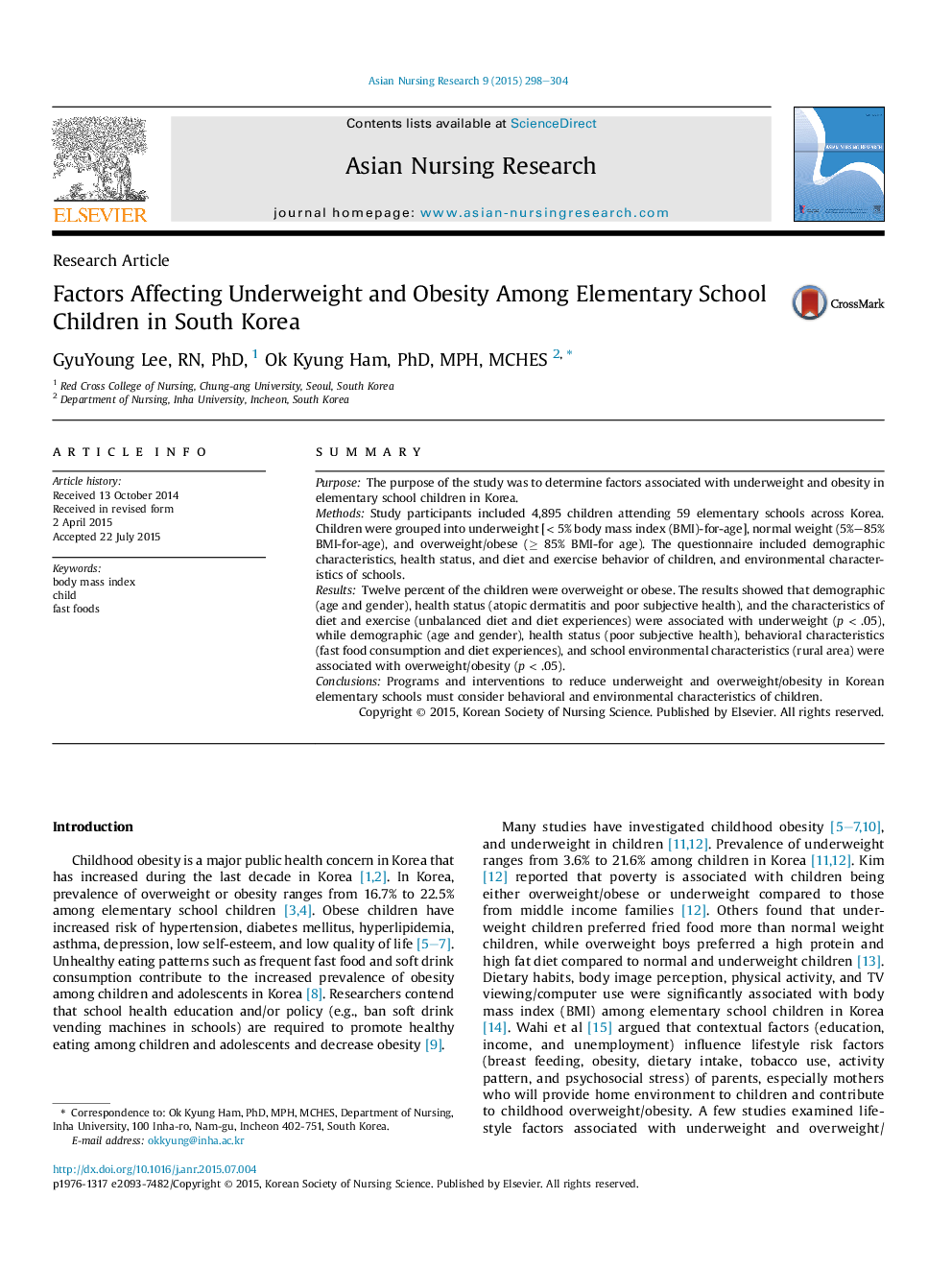| Article ID | Journal | Published Year | Pages | File Type |
|---|---|---|---|---|
| 2645516 | Asian Nursing Research | 2015 | 7 Pages |
SummaryPurposeThe purpose of the study was to determine factors associated with underweight and obesity in elementary school children in Korea.MethodsStudy participants included 4,895 children attending 59 elementary schools across Korea. Children were grouped into underweight [< 5% body mass index (BMI)-for-age], normal weight (5%–85% BMI-for-age), and overweight/obese (≥ 85% BMI-for age). The questionnaire included demographic characteristics, health status, and diet and exercise behavior of children, and environmental characteristics of schools.ResultsTwelve percent of the children were overweight or obese. The results showed that demographic (age and gender), health status (atopic dermatitis and poor subjective health), and the characteristics of diet and exercise (unbalanced diet and diet experiences) were associated with underweight (p < .05), while demographic (age and gender), health status (poor subjective health), behavioral characteristics (fast food consumption and diet experiences), and school environmental characteristics (rural area) were associated with overweight/obesity (p < .05).ConclusionsPrograms and interventions to reduce underweight and overweight/obesity in Korean elementary schools must consider behavioral and environmental characteristics of children.
